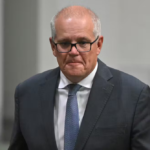Baird’s early exit means NSW loses a leader whose best years were yet to come
On Thursday NSW Premier Mike Baird has announced his resignation from politics. Gregory Melleuish, Professor at the University of Wollongong, has the details.
It used to be the case that participation in political life was considered to be a vocation, and that those who chose it were in it for the long haul, through thick and thin. The most prominent example of this in Australian history was Billy Hughes. Even after he lost the prime ministership in early 1923 he continued to be a member of the House of Representatives until his death in 1952.
That has all changed. Mike Baird’s resignation, both as New South Wales premier and from the state parliament, comes as somewhat of a shock. He is only 48, has been an MP for less than ten years and premier for less than three. One would have thought his best years in public life were ahead of him.
No scandals and no internal ructions
Baird has cited personal reasons for his decision to leave politics, and one can well sympathise with him in regard to the health of his parents and sister. Public life is demanding and invariably takes a toll on the personal lives of those who participate in it.
One should point out, though, that this is the case in many occupations, including the law, high-level finance and executive positions in the public service.
Baird is the fifth NSW premier in the last ten years, and only one of them lost their job as the result of an election. His predecessor, Barry O’Farrell, resigned in the wake of allegations he had failed to declare a bottle of Grange Hermitage as a gift.
One should ask if it is a good thing that the NSW premiership has been turned over so often in recent times. In this regard, it seems to resemble the turnover at the federal level.
Baird’s resignation was not caused by scandal or political machinations leading to him being overthrown. In his relatively short time as premier he has performed reasonably well. NSW has performed quite well in economic terms; there have been no issues in the area of power generation; and, as Baird points out, there has been infrastructure development.
Sure, there have been a few problems over the past year relating to council amalgamations and the attempt to close down the greyhound industry. Certainly 2016 was a much more difficult year for Baird than 2015.
The great unknown
One could argue, though, that the problems of 2016 could have been an important aspect of Baird’s political education, and one would have hoped it would make him a better and more effective premier. Alas, that is not to be the case.
Politicians like to argue that a political career is like any other career. This means they develop skills and capacities that make them good at their job. It also means they should become more effective the longer they spend in politics.
This was certainly the case with John Howard, who did not become prime minister until he had been in public life for more than 20 years.
In this regard we shall never know just how effective Baird might have been as a political leader. He became premier in 2014 and initially enjoyed considerable popularity. He won an election. And, like any political leader, he made a few mistakes that dinted his popularity.
At this stage, one would have expected that he would have taken advantage of his setbacks, as did Howard, to grow as political leader.
We will now not know the true capacities of Baird as a leader. Instead, a successor will have to take over and learn the ropes. It will be interesting to see how the NSW people react to yet another change in leadership.
The issue would seem to be that in the new world, for many politicians, a time in politics is just another stage in their careers as they progress to other things. This is not to deny that political life is a hard life. The problem may be the modern way of thinking of it as a career, as something one does just to satisfy ambition.
Australia, both federally and at the state level, needs good leadership if it is to thrive. Good leaders just don’t appear out of nowhere. They become good leaders by working hard and growing into their jobs.
This article was originally published on The Conversation. Read the original article.
Gregory Melleuish is a Professor at the School of Humanities and Social Inquiry in the University of Wollongong. He previously taught European history at the University of Melbourne and Australian Studies at the University of Queensland.













Max Thomas
January 22, 2017 at 5:57 am
The Baird has flown
Hawke told Howard that the most notable aspect of Menzies' reign was that it was too long. The records of some long-serving PMs and Premiers might suggest that the correlation between good government and length of tenure is not so strong. Perhaps their achievements were attributable more to the now diminished independence of the public sector. A politicised public servant on a short term contract cannot be expected to deliver fearless advice. Can a great leader who demands that we forego immediate wants for future benefits emerge from a wealthy and privileged population? In a sense, we have elected for government by stealth and deception. Chifley, Whitlam and Hewson, to name a few, attempted to open the door but the bird, preferring the security of the cage, flew back in. They paid a high political price which has not gone unnoticed by their successors.